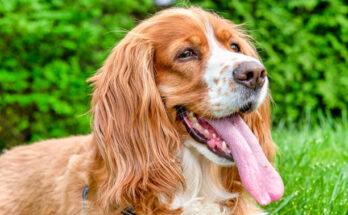The Parson Russell Terrier establishes itself as one of the top terrier breeds through its penetrating eyes along with its endless passion. Because of its powerful nature and intelligent brain combined with lively spirit this athletic dog shines both as a working terrier breed and dedicated family member. A complete and thorough overview exists which examines all aspects of Parson Russell Terrier lifestyle including historical development beside characteristics alongside care methods and training procedures in conjunction with its everyday requirements.
Table of Contents
- Introduction to Parson Russell Terriers
- History and Origin
- Physical Characteristics
- Personality and Temperament
- Training a Parson Russell Terrier
- Exercise and Activity Needs
- Nutritional Requirements and Diet
- Grooming and Hygiene
- Common Health Issues and Preventive Care
- Socialization and Behavior
- Living Conditions and Adaptability
- Fun Activities and Games
- Conclusion
Introduction to Parson Russell Terriers
Acting energetic with a compact build the Parson Russell Terrier advances as a perfect fox-hunting terrier depiction. The Parson Russell never acquired delicate traits from its origins because breeders developed this dog specifically for hunting field work by entering underground spaces to locate foxes and other vermin. An owner of a Parson Russell Terrier must possess traits that match its intellect and independence alongside ability to engage in its active ways of life because this breed demands both mental and physical engagement.
The mischievous spirit of these dogs combines a deep ancestral feud with independence so they become both fun yet hard to handle sometimes.
History and Origin
The Fox-Hunting Origins in England
The breeding lineage of the Parson Russell Terrier reaches back to organizations in Britain during the nineteenth century. Parson Jack Russell created this breed through his fox hunting background to chase foxes both above ground and below ground while lagging behind hunting hounds.
Breed Evolution and Recognition
Working breed owners initially named this type of terrier as the “Jack Russell Terrier” though breeders later chose the name “Parson Russell Terrier” to differentiate it from other available types. The American Kennel Club (AKC) adopted the Parson Russell Terrier breed as its own identity through formal recognition during 2003.
Fun Fact:
Reverend John Russell stated that he sought a white terrier because it would provide better visibility when doing fieldwork.
Physical Characteristics
Size and Build
- Height: 12–15 inches at the shoulder
- Weight: 13–17 pounds
- Build: Compact, square-bodied, and athletic
The Parson Russell Terrier stands out through its naturally extended legs linked with a strong muscular build that aids its endurance and swift movement.
Coat and Colors
A Parson Russell Terrier possesses a durable waterproof double coat which exists in two variations: smooth and broken with light wiriness. Wet and dry coats serve the same purpose of protecting the dog during outdoor use.
- Texture: Smooth or slightly coarse
- Colors: Predominantly white with tan, black, or tri-color markings
- Shedding: Moderate
Grooming your Parson Russell Terrier regularly allows you to control shedding while caring for their coat condition even though the breed does not have hypoallergenic features.
Personality and Temperament

What Are Parson Russells Like?
Parson Russells demonstrate the complete terrier personality type, consisting of courage and a lively nature and firm determination. The breed displays constant inquisitiveness along with quick mental agility and a well-known tendency to be mischievous. Their energetic nature needs daily companionship because they dislike unoccupied time.
Are Parson Russell Terriers Good Family Dogs?
Yes—especially for active families. These dogs create close relationships with their owners while enjoying play sessions with mature children. Supervision remains important for toddlers because these dogs maintain high energy levels together with being excitable.
Are They Good with Other Pets?
Caution is needed. Small pets, including rabbits and hamsters, are incompatible targets for their strong hunting instinct. Socializing a Parson Russell Terrier at an early age allows them to live with other dogs, yet they could attempt dominance over their pack mates.
Training a Parson Russell Terrier
Intelligence and Trainability
The Parson Russell Terrier possesses superior intellect, yet this attribute does not translate into absolute obedience. Their aptitude for learning extends quickly when they sense a motivational approach, and especially when they participate in enjoyable activities.
Basic Training Tips:
Begin early training sessions by enrolling your puppy in socialization classes, together with puppy classes.
The use of rewards through treats and praise, and toys will serve as positive reinforcement methods.
Brief yet diverse daily training periods help prevent dullness during sessions.
The use of harsh corrections will prompt Parson Russells to develop stubborn or rebellious behaviors.
Using crates provides homeowners with a method to handle their curious behavior when they are at home.
Socialization
A lack of socialization makes Parson Russells likely to display unwanted reactive behaviors and excessive assertiveness. Begin early Socialization by exposing the Parson Russell Terrier to different environments and introducing it to people and animals to develop confidence.
Exercise and Activity Needs
Daily Exercise Requirements
Parson Russells refuse to remain sedentary on the couch. A Parson Russell Terrier must receive daily vigorous exercises that last between 60 to 90 minutes.
Physical Activities:
- Long brisk walks or jogs
- Play sessions in secure areas
- Games like fetch or chase
- Backyard obstacle courses
Mental Stimulation
Brain activity at the same level of importance contributes to their health. A lack of mental occupations can lead to destructive behavior in dogs.
Mental Games and Tasks:
- Puzzle toys
- Hide-and-seek
- Advanced obedience challenges
- Scent work and “find it” games
Nutritional Requirements and Diet
Recommended Diet
A protein-rich, balanced diet made for active breeds provides the optimum nutrition for the Parson Russell Terrier to thrive.
Ideal Foods:
- Lean meats (chicken, beef, turkey)
- Whole grains or grain-free options
- Vegetables like carrots and spinach
- Omega-3 sources like salmon oil
Feeding Schedule
- Puppies: 3–4 meals per day
- Adults: 2 meals daily
A proper feeding schedule should exist because these dogs tend to gain weight rapidly from too much food. Always provide fresh water.
Grooming and Hygiene
Grooming Routine
Despite their hard exterior look, Parson Russells need only basic grooming routines.
Grooming Essentials:
- Brushing: 2–3 times per week
- Bathing: Every 6–8 weeks
- Nail Trimming: Every 2–3 weeks
- Ear Cleaning: Weekly
- Teeth Brushing: 2–3 times a week
Hand-stripping may be needed for broken-coated dogs to maintain coat texture.
Coat Maintenance by Age
- Puppies: Frequent brushing as the coat changes
- Adults: Routine grooming and occasional trims
Common Health Issues and Preventive Care
Common Health Conditions
Most Parson Russell Terriers are healthy dogs, but several conditions will occur naturally.
- Patellar Luxation (knee displacement)
- Legg-Calve-Perthes Disease (hip joint degeneration)
- Deafness (especially in white-coated lines)
- Lens Luxation (eye condition affecting vision)
Preventive Care:
- Schedule annual vet checkups
- Keep up with vaccinations and deworming
- Monitor joints, eyes, and ears regularly
- Ensure proper exercise and weight management
- Use genetic testing for breeding dogs
Socialization and Behavior
Socialization Tips
The building of well-mannered adult dogs requires positive and timely experiences with the puppies.
- Join puppy socialization classes
- Introduce people, environments, and noises
- Use calm reinforcement when new experiences go well
- Carefully manage interactions with other dogs
Common Behavioral Traits
- Energetic: Needs consistent outlets
- Assertive: May try to dominate other dogs
- Affectionate: Enjoys human companionship
- Mischievous: Needs supervision when bored
- Vocal: Alert barker, especially during play
Living Conditions and Adaptability
Ideal Home Setups
The Parson Russell demonstrates good adaptation abilities yet needs sufficient physical activities to remain content.
Best Living Environments:
- Homes with fenced yards
- Apartments, if paired with daily outdoor exercise
- Active households with consistent routines
Climate Sensitivity
- Cold Weather: Handles cool temperatures well
- Hot Weather: Needs shade, rest breaks, and hydration to prevent overheating
Never leave a Parson Russell unsupervised outdoors—they may dig, bark, or escape out of curiosity.
Fun Activities and Games
Physical and Mental Enrichment
Parson Russells achieve their best moments during social bonding activities.
Game Ideas:
- Tug-of-War: Strengthens your bond
- Agility Courses: Perfect for their speed and coordination
- Fetch: High-energy classic
- Scent Games: Put their nose to work
Enrichment Tools
- Food puzzle dispensers
- Hide-and-seek toys
- New tricks or obedience drills
- DIY brain games like cups-and-treats guessing
Rotate activities to prevent boredom.
Conclusion
These feisty dogs contain all the energetic excitement and mental aptitude and physical prowess which fit inside their small frame. The Parson Russell Terrier demands courageous owners who receive faithful love through never-ending bonds while experiencing endless amusement.
Key Takeaways:
Every day dedicated exercise and mental workout sessions help Parson Russells reach their peak.
The combination of early social habits and formal training practices stops behavioral problems from occurring.
You must groom this breed with consistency although its needs remain basic.
Tight family bonds define these dogs who need homes filled with consistency along with stimulating activities.
People who are active or have families will find the Parson Russell to be an intelligent funny and affectionate companion.
Selecting a Parson Russell Terrier leads a person to an existence packed with energy and smartness and featuring limitless exploration.




